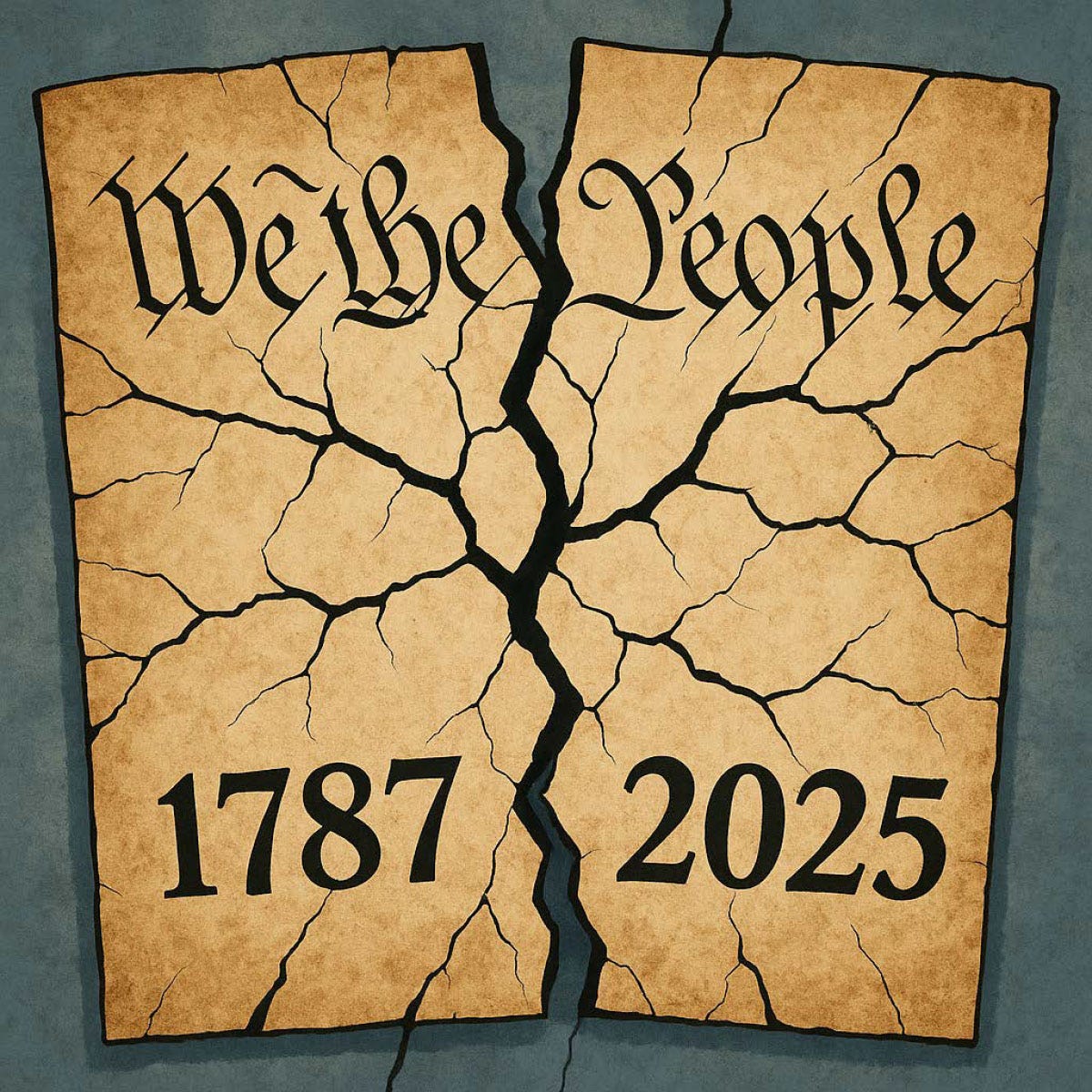Project 2025: Transforming Our Constitution or Undermining It?
The Steady State | By Martha Duncan
Project 2025, an initiative led by the Heritage Foundation, proposed sweeping changes to the federal government—reducing bureaucratic influence, increasing executive authority, and reshaping entire agencies. While supporters herald it as a correction to inefficiencies, critics argue it represents a direct threat to constitutional balance, the rule of law, and the core ideals of American democracy.
Since its drafting in 1787, our Constitution has been a living document, interpreted, amended, and debated through generations. Even among the Founding Fathers, there was deep disagreement. While they professed a desire to expand democratic ideals, they also sought to constrain majority rule to avoid tyranny. They constructed a system of checks and balances—three co-equal branches of government—to protect liberty from both mob rule and centralized authoritarianism.
Their fears of concentrated power were not hypothetical. As Myron Magnet wrote, “Officials are armed to protect you; but those officials have the same fallen human nature as everyone else... Who is to say they won’t use that power to oppress you?” Abraham Lincoln echoed this in 1856: “Don’t interfere with anything in the Constitution. That must be maintained, because it is the only safeguard of our liberties.”
Fast forward to today: the fear of executive overreach has become real. Project 2025 is not just a policy blueprint—it is a radical roadmap for reshaping the federal government and concentrating power in the hands of one leader. In its introduction, the document states its mission: to prepare conservatives “on Day One of the next administration to save our country from the brink of disaster.” From its opening pages, it draws hard ideological lines, blaming the “woke Left” for a humanitarian crisis and vowing to “rip out the trees—root and branch” of what it sees as governmental decay. The plan outlines four core mandates—each of which, when carried out, raises constitutional alarms
Restore the family and protect children.
This noble-sounding goal has been pursued, in part, through proposals to end birthright citizenship—violating the 14th Amendment’s guarantee of citizenship to all born on U.S. soil.Dismantle the administrative state.
In practice, this has meant mass firings, freezing federal grants, targeting law firms based on client affiliations, and weakening public health, education, infrastructure, and small business programs—actions that strain legal norms and constitutional roles of federal agencies.Defend national sovereignty and borders.
Under this guise, the administration has invoked the Alien Enemies Act to deport individuals without due process, bypassing protections under the 4th, 5th, and 14th Amendments.Secure “God-given individual rights.”
Yet deportations without hearings, indefinite detentions, and expedited removals directly contradict the Constitution’s promise of equal protection and due process for all individuals under U.S. jurisdiction—citizen or not.
Though subjects of suit and awaiting judicial reviews, these "fronts" have already been executed through executive orders and policy shifts that in and of themselves bypass legislative processes and court review. The actions speak clearly: Project 2025 is not a hypothetical document—it is a working playbook for this administration.
More alarming is how these moves erode the core structure of our republic. The Constitution enshrines separation of powers in its first three Articles :
Article I: Congress holds legislative authority.
Article II: The President executes the law—not creates it.
Article III: Courts interpret the law and ensure justice.
Yet this administration has repeatedly overstepped those bounds. From deploying federal forces without state consent to asserting federal authority over local matters, the President has overridden both the spirit and the letter of the Constitution. Invoking “extreme circumstances” does not erase the 10th Amendment’s guarantee that powers not granted to the federal government belong to the states or the people.
Paradoxically, Project 2025 declares, “The President must enforce the Constitution and laws as written, rather than proclaiming new ‘law’ unilaterally.” . But that’s precisely what this administration has done—ruling by executive fiat while marginalizing Congress and ignoring judicial oversight.
Behind this transformation are key architects:
Stephen Miller, the President’s Deputy Chief of Staff, whose record includes promoting literature from white nationalist groups and shaping harsh anti-immigrant policies. The Southern Poverty Law Center designates him an extremist.
Russell Vought, the former Director of the Office of Management and Budget, is the principal author of Project 2025’s vision. His plan calls for purging civil servants and replacing them with loyalists who will implement a Christian nationalist agenda and centralize executive power.
We are witnessing a constitutional mutiny—a silent but deliberate campaign to dismantle checks and balances, weaken civil liberties, and replace pluralism with ideological rigidity.
The Constitution has lasted over 230 years not because it was rigid, but because it was resilient. It was designed to prevent exactly the kind of authoritarian centralization we now face. The Founders warned us. Lincoln warned us. And we must now warn each other. This is not just political disagreement. This is a moment of constitutional crisis. We must remain vigilant, informed, and engaged. Because if we look away now, we may soon find that the document that once protected us has been rewritten—not by the people, but by power itself.
Martha Duncan is a retired DOD senior executive, with 36 years serving in the U.S. Army Reserves, as Reserve attaché, analyst, operations officer, and 3 deployments to areas of conflict.
Founded in 2016, The Steady State is a nonpartisan, nonprofit 501(c)(4) organization of more than 290 former senior national security professionals. Our membership includes former officials from the CIA, FBI, Department of State, Department of Defense and Department of Homeland Security. Drawing on deep expertise across national security disciplines including intelligence, diplomacy, military affairs and law, we advocate for constitutional democracy, the rule of law and the preservation of America’s national security institutions.




